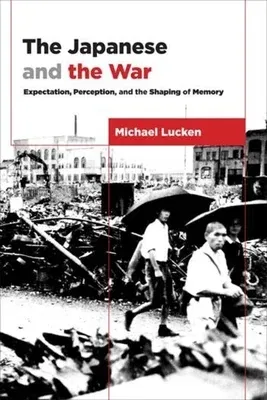Michael Lucken
(Author)The Japanese and the War: From Expectation to MemoryHardcover, 28 February 2017

Qty
1
Turbo
Ships in 2 - 3 days
In Stock
Free Delivery
Cash on Delivery
15 Days
Free Returns
Secure Checkout

Part of Series
Asia Perspectives: History, Society, and Culture
Print Length
376 pages
Language
English
Publisher
Columbia University Press
Date Published
28 Feb 2017
ISBN-10
023117702X
ISBN-13
9780231177023
Description
Product Details
Author:
Book Format:
Hardcover
Country of Origin:
US
Date Published:
28 February 2017
Dimensions:
23.11 x
15.49 x
3.3 cm
ISBN-10:
023117702X
ISBN-13:
9780231177023
Language:
English
Location:
New York
Pages:
376
Publisher:
Weight:
657.71 gm